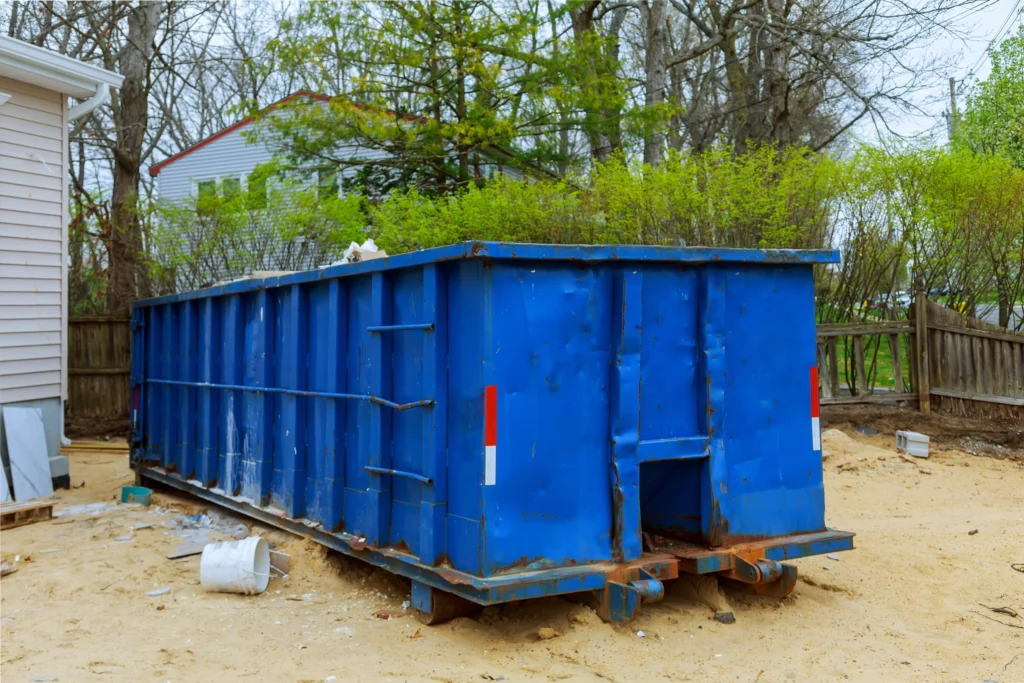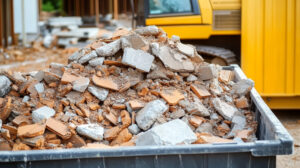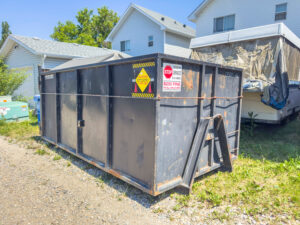When you have a construction or home renovation project, one thing that really comes in handy is a rented dumpster. It houses almost all your junk, including general waste and you do not have to worry about the disposal process. Having a dumpster rental guarantees you a seamless process of completing your project.
The only challenge that comes with rented garbage bins is when you do not really know what you can and what you cannot toss into the containers.
Throwing off the wrong items could see you pay higher rates than normal or worse still incur hefty fines from the local waste management authority. If you are one of the many people who are not sure what to and what not to toss into your waste bin, this article answers exactly that.
Yard Waste
Lawn cleanup produces tons of green matter that ranges from tree stumps, branches, leaves, sticks, and grass and plants clippings.

Residential Construction Garbage
Landscaping work also produces waste that includes soil, rocks, and mud. Apart from earth and rocks, most yard waste consists of green matter that once it reaches the landfills, starts to decompose almost immediately.
Report findings show that yard and construction waste makes up 2/3 of total junk in most American landfills. However, there is an exception for contaminated soils.
Construction and Tearing Down a House
Construction projects produce heavy and bulky waste that includes concrete, bricks, stones, tiles, asphalt and tons of wood. This is to offload the stress of your construction waste disposal so that you can focus fully on your project. A dumpster rental comes in handier when tearing down a house. The tons of waste that comes in different forms can all end up into the bins.
General Household Waste
One of the most common type of waste you can be sure to face no problems with your garbage company is the general household waste. It includes things such as expired and rotten foods, shopping bags, alkaline batteries like the AA and AAA sizes, old clothes and shoes. Unwanted shoes and clothes do not necessarily have to end up into the rented waste containers, they can be put up for donations or for resale in thrift shops.
Broken or Old Appliances
It is common for people to dispose of their current appliances to pave way for new and more advanced ones. For this reason, old appliances like refrigerators, ACs, washers and dryers can be tossed into the containers. For refrigerators, they have to be gas free to prevent fires or explosions during the leasehold or when hauling the container away. Obsolete and old electronics like computers, and smartphones are not permitted. This is because they contain lithium ion batteries that upon exposure to the outside heat could explore and cause grievous physical injuries to the company workers.
Old Furniture
Old furniture like dining tables, coffee tables, dressing table, and shoe racks are allowed into the rented containers. Leather or upholstered furniture on the other hand is not permitted. Most garbage companies accept almost all furniture into their containers as longs as it is wooden. With furniture, ensure to have the right size container or you could end up incurring higher rates than normal.
House Renovation Debris
House renovation works like bathroom, kitchen, garage and roofing makeovers produce tons of debris that is allowed into waste containers. Renovation debris comes in form of drywall, old and torn shingles, cabinetry, bathtubs, toilets, sidings, old paints, wood framing among many others.
Storm Cleanup Waste
Junk containers are designed for use during the extreme scenarios like storms and other calamities. The aftermath of such extremes is a trail of massive debris lying all over the yard, driveway and sometimes, on top of your pool cover. Storm cleanup debris gets easier and less stressful if you have a junk container. As long as it is not contaminated, all storm cleanup waste can go into the junk container.
Lumber, latex paints, automobile grease and other glues are prohibited from junk containers. Once in the containers, they may be stuck at the bottom and end up destroying the material. Hazardous materials like asbestos are highly prohibited from rented garbage containers since they are considered highly carcinogenic. Upon noticing such materials, you should immediately call licensed asbestos abatement professionals. To be on the right side of state and federal waste management laws, you should always consult with your garbage company for clarity of what should and what should not end up into the container.




